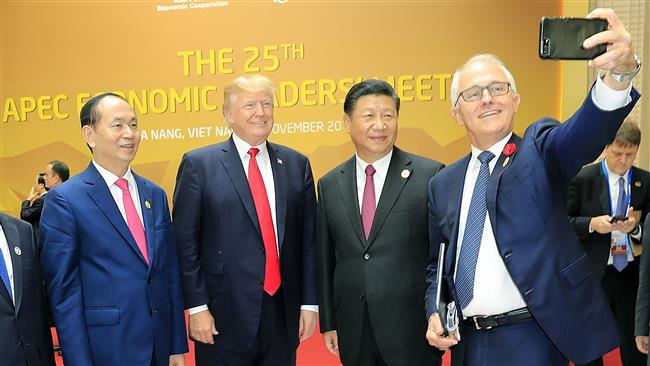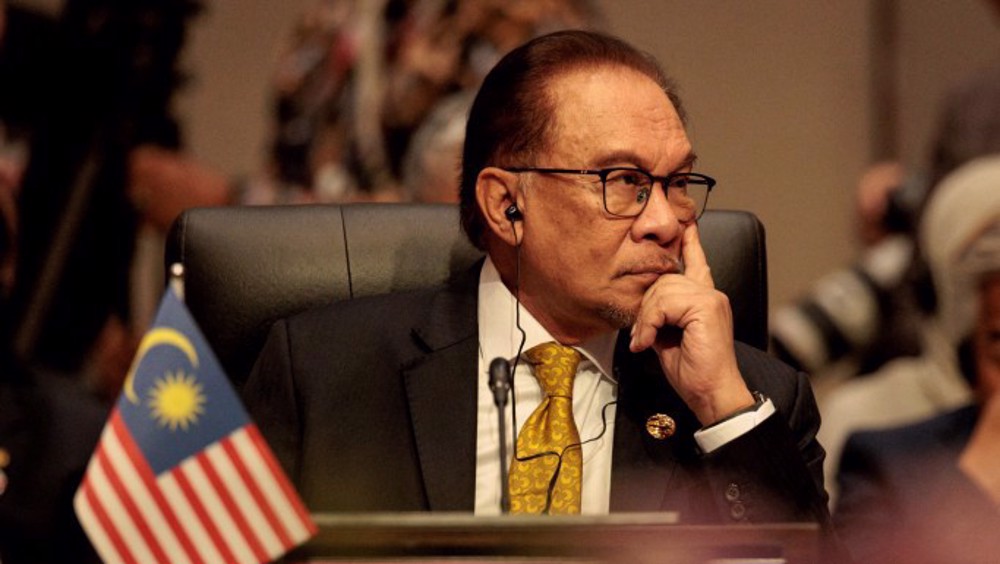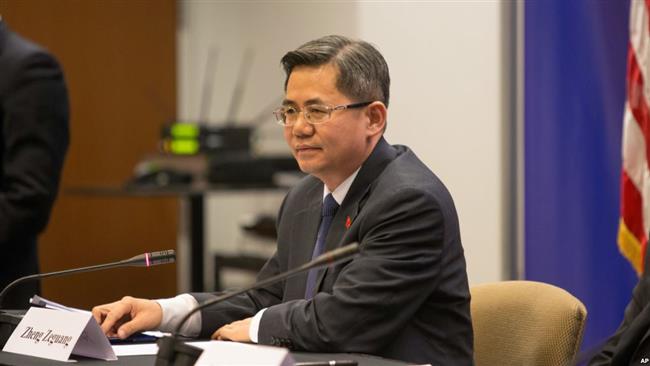China challenging US position in Pacific region: Australia
Australia has called on the United States to further increase its engagement in the Indo-Pacific region, warning of China’s growing influence.
“The United States has been the dominant power in our region throughout Australia’s post-Second World War history. Today, China is challenging America’s position,” read a major Foreign Policy White Paper, the first to have been issued by the Australian government in 13 years, on Thursday.
The 136-page document, which outlined Canberra’s approach to the Indo-Pacific region amid “changing power balances,” further said that it was difficult to navigate the decade ahead since the region was changing in ways unprecedented in Australia’s modern history as China gained more power.
“Australia believes that international challenges can only be tackled effectively when the world’s wealthiest, most innovative and most powerful country is engaged in solving them,” the Australian government said, referring to the US.
It further claimed that the US’s strong and sustained engagement in the world would play a crucial role in bringing about international “stability and prosperity,” adding that without such engagement, “the effectiveness and liberal character of the international order would erode.”
Before he was elected US president, Donald Trump campaigned on a strident anti-China rhetoric, promising at one point that he would declare Beijing a global currency manipulator on his first day in office. That designation never happened; and since assuming the presidency, Trump has been increasingly looking up to President Xi Jinping of China. Australia seems to be perceiving that U-turn as potentially a less aggressive US stance vis-à-vis Beijing and a prelude to disengagement from the region.
This is while the US has consistently maintained substantial military presence in the region, particularly in the Western Pacific.
The White Paper touched upon the issue of the South China Sea. Beijing claims almost all of sea, which is also claimed in part by Taiwan, Brunei, Vietnam, Malaysia, and the Philippines. The contested waters are believed to be rich in oil and gas.
The document highlighted South China Sea as a “major fault line in the regional order,” saying Australia was “particularly concerned by the unprecedented pace and scale” of alleged land reclamation and construction activities in the disputed waters by China.
China’s Foreign Ministry on Thursday criticized parts of the document, which is said made “irresponsible remarks” on the South China Sea.
While China has been handling its territorial disputes with rival claimants smoothly, the US has often been stirring up tensions by accusing China of expansionism and conducting what it calls freedom-of-navigation patrols in the South China Sea. Beijing denies the accusation against it and calls on the US to refrain from intervening in the affairs of a region it does not belong to.
Barbados officially announces recognition of Palestine as state
US Senate reauthorizes surveillance bill despite privacy concerns
April 19: ‘Axis of Resistance’ operations against Israeli occupation
Pro-Palestine rallies spread after students arrested at Columbia University
US to pull out troops from Niger after France: Report
US sanctions on Venezuelan oil ‘violation of human rights’: Iran
VIDEO | Hundreds of students take to streets in Milan in support of Palestine
UN warns hundreds of thousands of Sudanese under ‘immediate danger’













 This makes it easy to access the Press TV website
This makes it easy to access the Press TV website